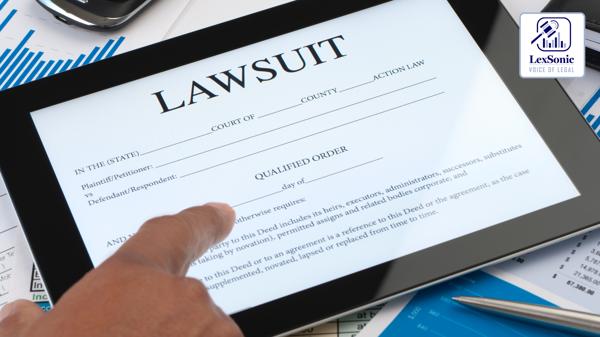Supreme Court Reinstates Property Suit, Emphasizes Limits of Plaint Rejection.
23 May 2025
Civil Suits >> Civil & Consumer Law | Property Law >> Personal Law
In a significant ruling on May 23, 2025, the Supreme Court of India allowed the appeal of Vinod Infra Developers Ltd., setting aside a Rajasthan High Court order that had rejected their civil suit concerning a land dispute in Jodhpur. The Supreme Court, comprising Justice J.B. Pardiwala and Justice R. Mahadevan, found that the High Court erred in rejecting the plaint in its entirety under Order VII Rule 11 of the Code of Civil Procedure, 1908 ("CPC").
The case revolves around a 2014 transaction where Vinod Infra Developers Ltd. (the appellant) obtained a loan of Rs. 7.5 crore from Mahaveer Lunia (Respondent No.1). In connection with this loan, the appellant company's Managing Director and an authorized representative executed an unregistered power of attorney and an agreement to sell the subject property (agricultural land in Village Pal, District Jodhpur) in favor of Respondent No.1. The appellant contended these documents were security for the loan, effectively a mortgage.

In 2022, after the appellant company attempted to settle the loan and retrieve original documents, they revoked the authority granted to Respondent No.1 on May 24, 2022, and the power of attorney on May 27, 2022. Despite this revocation, Respondent No.1 executed sale deeds on July 13 and 14, 2022, which were registered on July 19, 2022, in his favor and in favor of Respondent Nos. 2 to 4, leading to mutation in revenue records.
Aggrieved, Vinod Infra Developers Ltd. filed a civil suit seeking declaration, possession, and a permanent injunction. Respondent Nos. 1 to 4 moved for rejection of the plaint under Order VII Rule 11 CPC, arguing no cause of action, incorrect valuation, and insufficient court fee. The Additional District Judge dismissed this application, noting triable issues. However, the High Court overturned this, rejecting the plaint entirely.
The Supreme Court, in its judgment, highlighted that rejection of a plaint under Order VII Rule 11 CPC is permissible only if it fails to disclose a cause of action, is barred by law, is undervalued, or insufficiently stamped, strictly based on the plaint's averments. If triable issues exist, summary rejection is not appropriate.
The Court emphasized that the unregistered power of attorney and agreement to sell, executed in 2014, could not confer valid authority to transfer title and were revoked prior to the execution of the sale deeds. Citing Sections 17 and 49 of the Registration Act, 1908, the Court reiterated that unregistered documents cannot convey title and are inadmissible as evidence for transfer, except for collateral purposes or in specific performance suits. Since Respondent No.1 had not filed any suit for specific performance, he could not assert proprietary rights based on these unregistered documents.
Furthermore, the Court referenced Section 54 of the Transfer of Property Act, 1882, stating that a contract for sale does not, by itself, create any interest in immovable property. The Supreme Court also relied on its previous rulings in Suraj Lamp & Industries (P) Ltd. v. State of Haryana and Cosmos Co. Operative Bank Ltd. v. Central Bank of India & Ors., which unequivocally state that immovable property can only be legally transferred by a registered deed of conveyance.
A crucial point of the Supreme Court's decision was the High Court's error in treating the second cause of action—the sale deeds registered on July 19, 2022, subsequent to the power of attorney's cancellation—as "academic". The Court cited Central Bank of India v. Prabha Jain, reaffirming that a plaint cannot be rejected in its entirety merely because one prayer or relief is legally untenable, as long as other reliefs are maintainable and based on independent causes of action.
The Court also addressed the contention regarding insufficient court fees, noting that the law mandates providing the plaintiff an opportunity to rectify such deficiencies, and rejection is only permissible upon failure to comply.
The Supreme Court concluded that the factual disputes raised by the respondents, such as the notarization of the power of attorney or their possession of the property, require adjudication during trial and cannot be resolved at the Order VII Rule 11 stage. It also reiterated that issues of title to immovable property fall within the exclusive jurisdiction of civil courts, not revenue authorities, and revenue entries are administrative for fiscal purposes only.
Consequently, the Supreme Court allowed the appeal, setting aside the High Court's order and restoring the Additional District Judge's order. The plaint will now proceed with the suit at the trial court.
